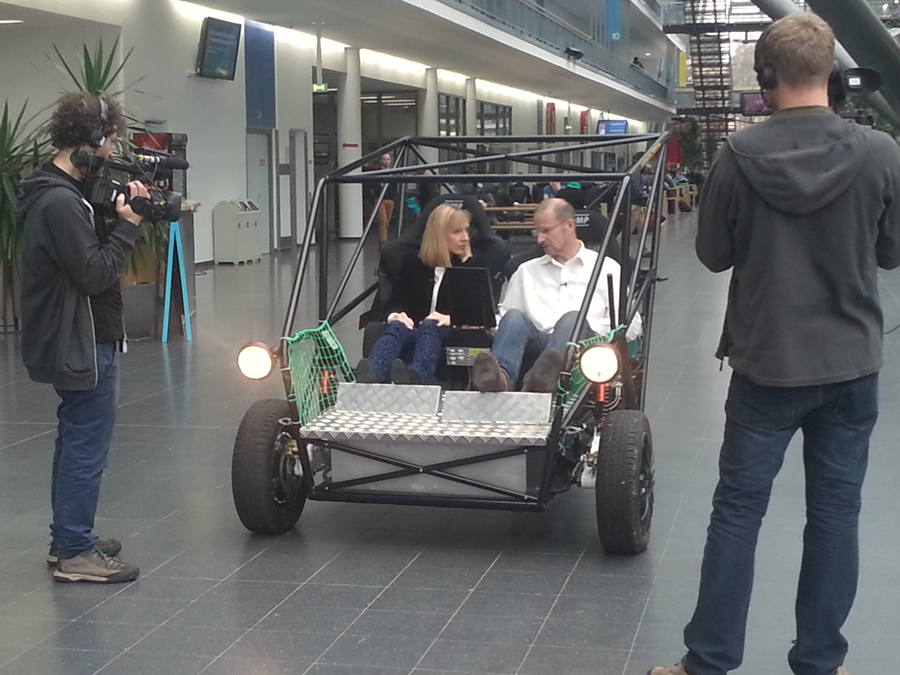BBC program “Horizons” reports on research at TUM
Self-healing concrete and the eSeater on BBC World News

Repair work at bridges or tunnels can lead to major traffic jams. Wouldn’t it be practical if the construction material had the capability to repair itself? Prof. Christian Grosse of TUM’s Chair for Non-destructive Testing explains how that could work in the episode “Reinventing Rail and Roads” of BBC’s “Horizons” series.
Prof. Gernot Spiegelberg has developed a novel vehicle concept that is tailored to the needs of the elderly, among others. The BBC film team tested a prototype of the eSeater in the great hall shared by the Computer Science and Mathematics departments.
Watch the videos on the Internet
The complete episode “Reinforcing Rail and Roads” will be broadcast on BBC World News on May 9 (9:30 CET) and on May 10 (21:30 CET).